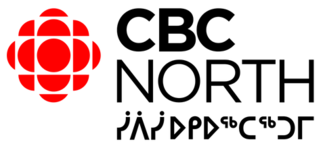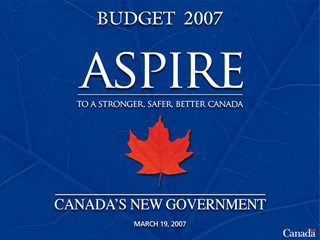Related Research Articles

The Canadian Broadcasting Corporation, branded as CBC/Radio-Canada, is the Canadian public broadcaster for both radio and television. It is a Crown corporation that receives public funding from the government. The English- and French-language service units of the corporation are commonly known as CBC and Radio-Canada, respectively.
Radio Canada International (RCI) is the international broadcasting service of the Canadian Broadcasting Corporation (CBC). Prior to 1970, RCI was known as the CBC International Service. The broadcasting service was also previously referred to as the Voice of Canada, broadcasting on shortwave from powerful transmitters in Sackville, New Brunswick. "In its heyday", said Radio World magazine, "Radio Canada International was one of the world's most listened-to international shortwave broadcasters". However, as the result of an 80 percent budget cut, shortwave services were terminated in June 2012, and RCI became accessible exclusively via the Internet. It also reduced its services to five languages and ended production of its own news service.

CBAT-DT is a CBC Television station in Fredericton, New Brunswick, Canada. It has common ownership with Moncton-based Ici Radio-Canada Télé station CBAFT-DT. CBAT-DT's studios are located on Regent Street and Vanier Highway in Fredericton, and its transmitter is located on Rice Hill. CBAT originally broadcast from a transmitter located on Mount Champlain near Saint John, its city of licence until 2011, and operated a network of rebroadcasters throughout the province.
CBC News is a division of the Canadian Broadcasting Corporation responsible for the news gathering and production of news programs on the corporation's English-language operations, namely CBC Television, CBC Radio, CBC News Network, and CBC.ca. Founded in 1941, CBC News is the largest news broadcaster in Canada and has local, regional, and national broadcasts and stations. It frequently collaborates with its organizationally separate French-language counterpart, Radio-Canada Info.

CBC North is the Canadian Broadcasting Corporation's radio and television service for the Northwest Territories, Nunavut, and Yukon of Northern Canada as well as Eeyou Istchee and Nunavik in the Nord-du-Québec region of Quebec.

The Winnipeg Police Service is the police force of the city of Winnipeg, Manitoba, Canada.

The 2007 Quebec general election was held in the Canadian province of Quebec on March 26, 2007 to elect members of the 38th National Assembly of Quebec. The Quebec Liberal Party led by Premier Jean Charest managed to win a plurality of seats, but were reduced to a minority government, Quebec's first in 129 years, since the 1878 general election. The Action démocratique du Québec, in a major breakthrough, became the official opposition. The Parti Québécois was relegated to third-party status for the first time since the 1973 election. The Liberals won their lowest share of the popular vote since Confederation, and the PQ with their 28.35% of the votes cast won their lowest share since 1973 and their second lowest ever. Each of the three major parties won nearly one-third of the popular vote, the closest three-way split in Quebec electoral history until the 2012 election. This was however, the closest three-way race in terms of seat count. Voter turnout among those eligible was 71.23%, a marginal difference from the previous general election in 2003.

The Canadian federal budget for the 2007–2008 fiscal year was presented to the House of Commons of Canada by Finance Minister Jim Flaherty. Flaherty presented the 2007 budget on March 19, 2007. No income tax or GST cuts were announced but there were tax credits for some families with children under 18. The federal budget included $14 billion in new spending and $5.7 billion in tax cuts. This was the second budget of the 39th Canadian Parliament.
The People's Alliance of New Brunswick (PANB) is a provincial political party in the Canadian province of New Brunswick. In the 2018 election, the party won three seats in the provincial legislature for the first time since its founding. The party advocated for "common sense" government and the abolition of the Office of the Commissioner of Official Languages, with a transfer of that office's responsibilities to the office of the provincial ombudsman. The party's platform has been described as "a mixture of economic conservatism, rural populism and opposition to some aspects of official bilingualism and duality".

The Canadian federal budget for the 2008-2009 fiscal year was presented to the House of Commons of Canada by Finance Minister Jim Flaherty on February 26, 2008.
The Canadian federal budget for fiscal year 2012–13 was presented to the House of Commons of Canada by Finance Minister Jim Flaherty on 29 March 2012. Among the most notable elements of the federal budget were changes to Old Age Security and a reduction of the budget for the Canadian Forces and the Canadian Broadcasting Corporation.

The 2014 Quebec general election was held on April 7, 2014 to elect members to the National Assembly of Quebec. The incumbent Parti Québécois which had won a minority government in 2012 was defeated by the Quebec Liberal Party under Philippe Couillard who won a majority government of 70 seats, while the incumbent Parti Québécois finished second with 30 seats, becoming the first single-term government since Jean-Jacques Bertrand's Union Nationale government was defeated in 1970. Pauline Marois electoral defeat marked the shortest stay of any Quebec provincial government since the Canadian Confederation. It marked the lowest seat total for the Parti Québécois since 1989 and its smallest share of the popular vote since its inaugural run in 1970, as Premier Pauline Marois lost her own riding. The Coalition Avenir Québec under François Legault made minor gains in terms of seats despite receiving a smaller share of the popular vote than in the previous election. Québec solidaire won an additional seat, though co-spokesperson Andrés Fontecilla failed to win his riding. This election saw the return of the Liberals to power 2 years after their defeat in 2012. To date this is the last election where the Liberal Party won a majority of seats in the Quebec Assembly.
The Canadian federal budget for fiscal year 2013–2014 was presented to the House of Commons of Canada by Finance Minister Jim Flaherty on 21 March 2013. The budget bill was tabled in the legislature on 29 April 2013 as the Economic Action Plan 2013 Act, No. 1. A second budget bill will be tabled in the autumn, which will include elements excluded from the first bill, such as the Canada Job Grant. The deficit was projected to be $18.7 billion for the fiscal year 2013-2014, however this was adjusted to $8.1 billion by end of the fiscal year and once the Auditor General's recommendations on the Government's unfunded pension obligations were taken into account.

The Canadian federal budget for fiscal year 2014–2015 was presented to the House of Commons of Canada by Jim Flaherty on 11 February 2014. This was the last budget presented by the Finance Minister before his resignation in March and death in April. At the end of the fiscal year, the government was surprised to post a budgetary surplus of $1.9 billion. This however would later be overturned to a small deficit of $550 million due to improper accounting methodologies for the Government's unfunded pension obligations, as pointed out for years by the Auditor General.
The Canadian federal budget for fiscal year 2018–2019 was presented to the Canadian House of Commons by Finance Minister Bill Morneau on February 27, 2018 as the omnibus Budget Implementation Act, 2018, No. 1. The deficit was projected to be $18.1 billion, including a $3 billion adjustment for risk. This was later refined to $14.0 billion when the Annual Financial Report of the Government of Canada for Fiscal Year 2018–2019 was released.
The Canadian federal budget for the fiscal years of 2020–21 and 2021–22 was presented to the House of Commons by finance minister Chrystia Freeland on 19 April 2021. The Canadian government did not produce a budget in 2020 due to the COVID-19 pandemic. Instead, the government produced a series of economic updates and stimulus plans throughout the year.
The Canadian federal budget for fiscal year 1996-1997 was presented by Minister of Finance Paul Martin in the House of Commons of Canada on 6 March 1996. It is the first Canadian federal budget that was identified with an unofficial subtitle: Securing the Future.
The Canadian federal budget for fiscal year 1977-1978 was presented by Minister of Finance Donald Stovel Macdonald in the House of Commons of Canada on 31 March 1977. The budget introduced wage and price controls in an attempt to control inflation. This policy had been a campaign proposal put forward by Robert Stanfield's Progressive Conservatives it the 1974 Canadian federal election, but was criticized by Pierre Trudeau at the time.
The Canadian federal budget for fiscal year 1969-1970 presented by Minister of Finance Edgar Benson in the House of Commons of Canada on 3 June 1969. This was Canada's last balanced budget until Paul Martin's budget of 1997-98.

The 44th Canadian Parliament is the session of the Parliament of Canada which began on 22 November 2021, with the membership of the House of Commons, having been determined by the results of the 2021 federal election held on 20 September. Parliament officially resumed on 22 November with the re-election of Speaker Anthony Rota, and the Speech from the Throne read by Governor General Mary Simon the following day.
References
- 1 2 3 "Canada's deficits and surpluses, 1963-2014". CBC News. CBC/Radio-Canada. Retrieved 25 April 2015.
- ↑ "The Leader-Post". news.google.com. 13 March 1970. Retrieved 2020-06-17.